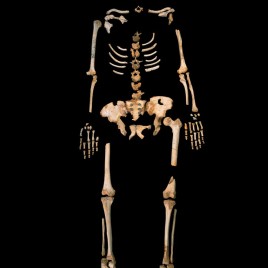An overview of 1.6 million deaths in Ontario over a 20-year period revealed that people with schizophrenia are three times more likely to die—and die younger—than the general population. New research revealed that the most vulnerable schizophrenia patients are female, younger and living in lower-income neighbourhoods. While the average life expectancy for people with schizophrenia […]
Tag: Ontario
40% of opioid prescriptions in Ontario still above new national guidelines, report finds 
Opioid prescribing practices in Ontario are becoming safer, but many patients with existing prescriptions before the introduction of the new guidelines are still receiving higher doses of the painkiller, report finds. Researchers also found that patients from lower socioeconomic groups are still overrepresented among those seeking treatment for opioid addiction and dying of an opioid-related […]
Obesity rising in least walkable Ontario neighborhoods 
Obesity rates are rising in neighbourhoods in Southern Ontario with low walkability ratings, while in highly walkable neighbourhoods obesity rates remain steady. There was also a fall in the rate of new diabetes cases in the more walkable neighbourhoods, according to the results of a new study. The study examined patterns of obesity, diabetes, and […]

High death rate among previously incarcerated Canadians 
Individuals who have been incarcerated have an overall shorter life expectancy than the average Canadian, as well as a far greater likelihood of dying due to an overdose. Authors of a new Canadian study believe the consistently high death rate, both while in custody and after release, suggests this is not simply a result of […]
People with disease-causing mutations who remain mysteriously healthy
Researchers have identified 13 people who appear to be healthy, despite carrying genetic mutations associated with severe childhood disease. Researchers identified these individuals after performing genomic analysis on more than half a million people. The team believes their study provides a first step toward pinpointing genetic variants that may protect against childhood diseases currently thought to […]
Prenatal sex selection?
Indian-born women who already have two daughters are significantly more likely to have a son after moving to Canada, which the researchers and the author of an accompanying commentary believe shows “prenatal sex selection is likely present among first-generation immigrants to Canada from India and provide strong evidence that suggests induced abortions are being used […]

Revising the age of the Hobbit
A new paper suggests that “hobbits” or Homo floresiensis (nicknamed the hobbit for its physical stature) lived longer ago than previously thought, and that they may not have encountered modern humans. Researchers used new chronological and stratigraphic information from the Liang Bua cave in Indonesia to make this claim. Previous dates suggested floresiensis used the […]
Learning from the naked mole rat
When most mammals, including humans, are in a low-oxygen environment they begin to hyperventilate to increase their oxygen uptake. However this is an energetically costly way to increase oxygen levels in the body. The naked mole rat is unique from other mammals; when it is exposed to hypoxia (low oxygen levels) it does not begin […]
The next miracle cure – exercise
Physical activity and specific exercises have been shown to be effective in alleviating the symptoms of many chronic health conditions such as knee osteoarthritis, low back pain, and chronic obstructive pulmonary disease (COPD). However a new review shows these exercises are being under-prescribed by physicians. The authors suggest this is due to a lack of […]

Filling in the family tree: The Sima de los Huesos hominins
Hominins found in the Sima de los Huesos (“pit of bones”) in northern Spain are more closely related to Denisovans than Neanderthals, according to genetic analysis. Until now it has been unclear how the 28 individuals were related to other hominins living during the Late Pleistocene. Analyzing the mitochondrial DNA lead the authors to conclude […]
Poor health in prisons
Canadians in jails and prisons are more likely to have mental health or substance abuse issues compared to the general population, according to a review of the available evidence. Additionally Canadians in jail or prison are more likely to attempt suicide. More than half of the individuals incarcerated in federal or provincial prisons and jails […]
Growing hearts in 3D
Growing realistic human tissue outside the body is now possible thanks to the recently developed “person-on-a-chip” according to researchers at University of Toronto. The new technology, called AngioChip, could one day be used to repair or even replace damaged organs. In the meantime the researchers believe their development offers a new tool for discovering and testing […]

Protecting healthcare workers – Masks v. Respirators
Respirators and surgical masks both help protect health workers from respiratory infections, however there has been a debate about which is more effective and different guidelines provide different recommendations. A review of the accumulated evidence does not suggest that the N95 respirator is superior to surgical masks. The authors suggest a randomized controlled trial, […]
The Brain Prize – Congratulations Dr. Collingridge
Dr. Graham Collingridge, Chair of the Department of Physiology, University of Toronto, has been awarded The Brain Prize, widely known as the “Nobel of neuroscience”, for his research on the cellular mechanisms of learning and memory. The million euro prize is awarded by the Grete Lundbeck European Brain Research Foundation in Denmark. Dr. Collingridge shares […]
Cutting away at the mystery of leafcutting bees
Leafcutting bees use pieces of various plant leaves to build their nests, however determining which plants they prefer has been a challenge. In the past, researchers had to either observe leafcutting bees visiting a plant or identify pieces of leaf in the nest in to know which plant the bees relied on. Now, using DNA […]
Urgent action needed against mycotoxin contamination
The International Association for Research on Cancer is urging action against widespread mycotoxin contamination in developing countries. More than 500 million people are being exposed to fungal toxins, which can cause illness and even death. Dr. David Miller, from Carleton University, is the chair of the working group. Original research published by the International Agency for Research on […]